2021 by the University Press of Kansas
All rights reserved
Published by the University Press of Kansas (Lawrence, Kansas 66045), which was organized by the Kansas Board of Regents and is operated and funded by Emporia State University, Fort Hays State University, Kansas State University, Pittsburg State University, the University of Kansas, and Wichita State University.
Library of Congress Cataloging-in-Publication Data
Names: Cook, Brian J., 1954 author.
Title: The fourth branch : reconstructing the administrative state for the commercial republic / Brian J. Cook.
Description: Lawrence : University Press of Kansas, 2021. | Series: Studies in government and public policy | Includes bibliographical references and index.
Identifiers: LCCN 2020042477
ISBN 9780700632077 (cloth)
SBN 9780700632084 (epub)
Subjects: LCSH: Administrative agenciesUnited StatesReorganization. | Administrative procedureUnited States. | Public administrationUnited States. | Separation of powersUnited States. | Constitutional historyUnited States.
Classification: LCC JK421.C636 2021 | DDC 352.3/670973dc23
LC record available at https://lccn.loc.gov/2020042477.
British Library Cataloguing-in-Publication Data is available.
Printed in the United States of America
10 9 8 7 6 5 4 3 2 1
The paper used in the print publication is acid free and meets the minimum requirements of the American National Standard for Permanence of Paper for Printed Library Materials Z39.481992.
PREFACE AND ACKNOWLEDGMENTS
What kind of nation, what form of self-government, do Americans desire? If Americans had the chance today to choose how they wanted to govern, what would be their choice? As the United States approaches its 245th year a debate has erupted about whether the nation is a republic or a democracy. Some say it is both, in the sense that the terms today are virtually interchangeable. Others, claiming to take an originalist position, insist that the United States is a republic, emphatically not a democracy. For some zealots, the latter term should, among other things, be excised from textbooks (Bernstein 2019). Although this particular dispute may seem silly to many, it suggests, at least among those citizens willing to give it some thought, that there is considerable confusion about how to answer the questions I have posed. Moreover, it seems incredibly difficult, not to mention potentially very tedious, to get consistent answers, or any useful answers at all, by consulting the past (Cotlar 2013). Many people are inclined, therefore, to throw their hands up in frustration and go shopping. And there is the answer to those questions.
Americans aspire to a distinctive political systemcall it a commercial republicin which they have combined a particular set of political institutions with a market economy. It is this combination that they have hoped would fulfill their aspirations to self-government while at the same time enabling them to seek material comfort through the satisfaction of their acquisitive desires. Americans have been fashioning and refashioning their commercial republic almost continuously over the last two and a half centuries. They have come to venerate more and more, nearly to the point of self-delusion for some, the designs underlying their peculiar form of self-government even as they have repeatedly confronted its shortcomings and faced frustrations large and small down to the present day. They are deeply wary of abstract thinking and firmly believe in their pragmatic capacity to fix what is wrong. Yet they reject wholly expedient repairs that they perceive as lacking anchors in their most cherished myths about basic structures and principles. Those structures and principles are both a benefit and a burden, keeping formless change from taking hold, but inducing fear of consequences from any steps outside the charmed circle of the venerated founding and what it allegedly wrought. Thus, like astronomers trying to work with Ptolemys geocentric model of the solar system, they overlay new spheres in order to keep the mechanics of the system in equilibrium, dismissing a full confrontation with what really ails their regime as too radical to contemplate.
The stresses and strains, contradictions and flaws, of the design-in-practice of American governancethe working constitution (Long 1952, 10; Elkin 2006, 53)have, nevertheless, become magnified to the point that regime failure is now something more than merely a dystopian fantasy. To understand why, and what more far-reaching reconceptions of the regime might be worth considering, requires reexamining the bases of the American commercial republican design and the ensuing struggles with the design over the course of American political and economic development. To undertake an effective examination of this sort requires a distinctive theoretical lens that casts a harsh light on design fundamentals. The result, not for the faint of heart, points to the need for a more sweeping proposal for constitutional redesign. This redesign deserves a hearing for how it might get the regime out of the problematic condition into which its founding design and developmental struggles have led it. The redesign is drastic in that it questions the sacrosanct tripartite separation of powers allegedly at the heart of the constitutional defenses against tyranny. What may prove even more alarming to many, the proposed redesign brings forward as the chief constituent of change in the separation of powers structure what American tradition has seen as one of the most potent possible sources of tyranny: bureaucracy, or, more expansively, an administrative state. Administration, organized into an administrative state, has been a crucial yet problematic element of the American commercial republic in design and practice from nearly the beginning. Taking account of the structures and functions of this administrative state, the roles it has played, the problems it has posed, and the opportunities it offers with respect to the design, development, and redesign of the American commercial republic in the face of a working constitution increasingly adrift is the central object of this book.
This is not an exercise in refining constitutional or administrative law or even theorizing about constitutional or administrative law, although it draws on prominent analyses and debates in those areas. It may be closer to constitutional theory, or political theory. Calling it theorizing may be too grandiose, however. It is simply an effort to sift through a great deal of illuminating prior scholarship in history, political theory, and the study of politics, law, government, and administration to probe the possibilities of designing, redesigning, and improving the American commercial republic. At its heart the book is an attempt to think about the theory and design of a commercial republic without the constraints of concern for politically acceptable solutions, none of which so far put forward has proved adequate for the challenge, while staying true to the fundamental American aspirations to create and perpetuate a just and effective form of self-government. Government is meant for the good of ordinary people, and it is for ordinary people that the student should elucidate its problems, Woodrow Wilson once asserted (Link 1968, 399). As hard as it sometimes is for Americans to accept, this means taking full measure of the power of administration, not just the problems and dangers it poses but also its potential for goodgood service, good social, economic, and political relations, and good and just governance.

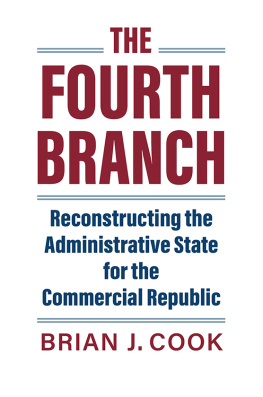

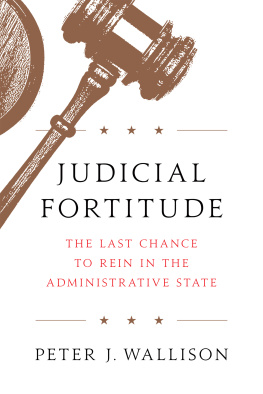
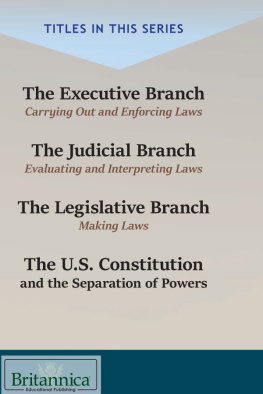
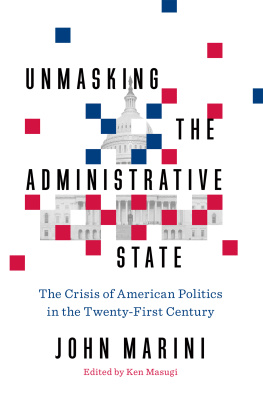
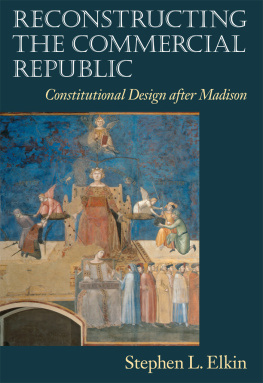
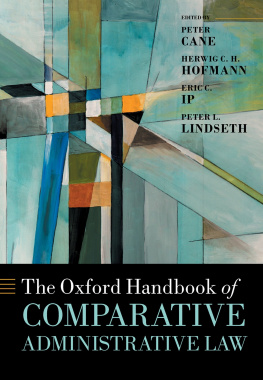

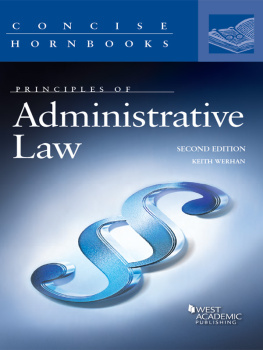
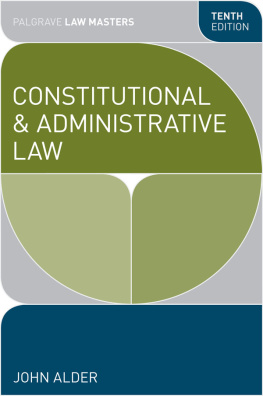
 University Press of Kansas
University Press of Kansas